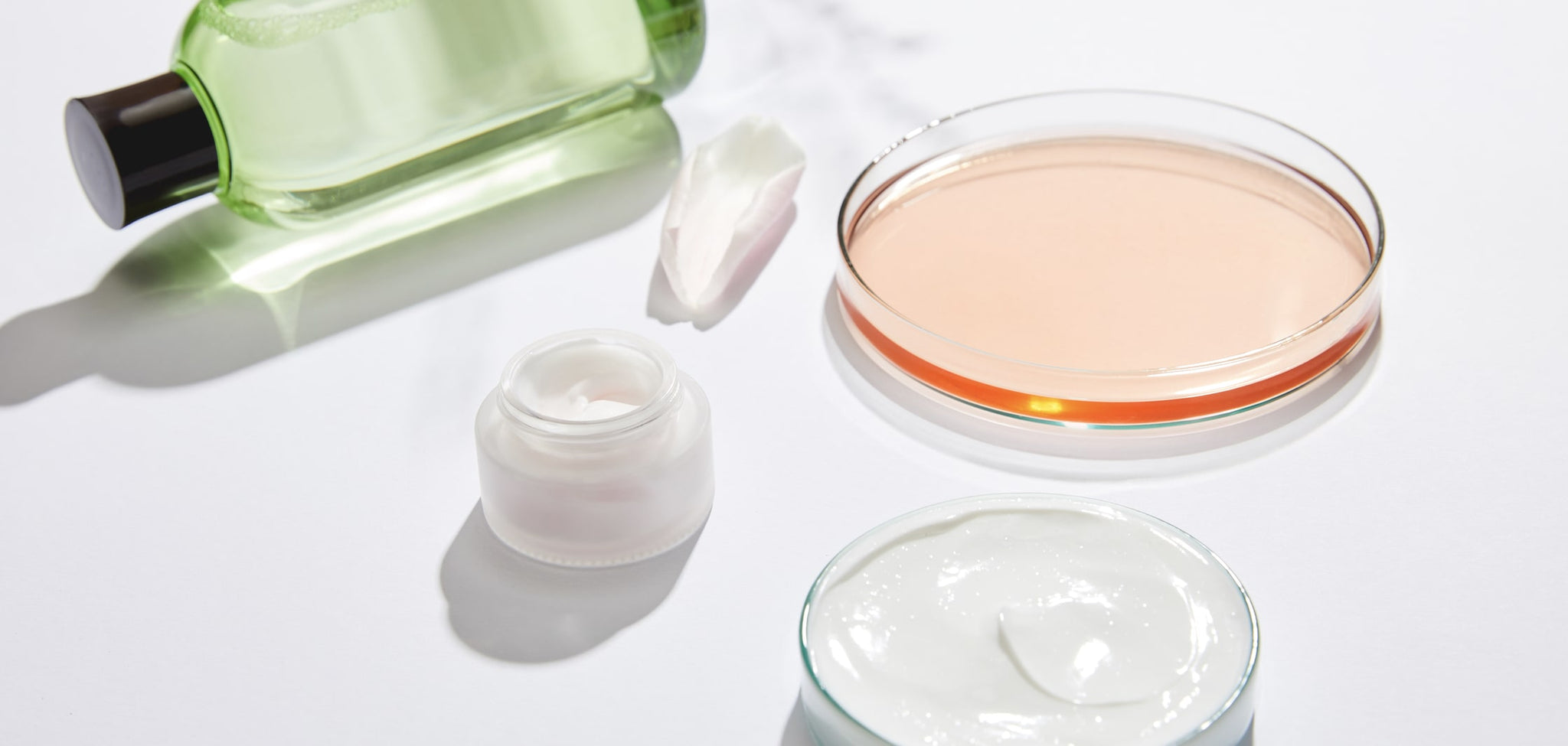Dimethicone: The Hidden Concerns in Your Skincare and Cosmetic Routine
In today's booming conventional and natural/organic-focused beauty industry, navigating the vast array of skincare products can feel like traversing a labyrinth, with each aisle offering a plethora of promises for flawless skin.
Among the myriad ingredients touted for their transformative properties, dimethicone stands as a ubiquitous presence, found in everything from moisturizers to hair serums.
At first glance, its ability to bestow a velvety-smooth texture upon cosmetics may seem like a boon for beauty enthusiasts.
However, beneath the surface lies a complex tapestry of concerns regarding its long-term effects on both our skin and the environment. Join us as we embark on a journey to unravel the mysteries of dimethicone and shed light on why its omnipresence in skincare may warrant a closer examination.
What is Dimethicone?
Dimethicone, also known as polydimethylsiloxane (PDMS), represents a silicone-based polymer renowned for its unparalleled ability to confer a luxuriously smooth texture to skincare and hair care products alike.
This silicone oil, with its unique properties, has cemented its status as a darling of the cosmetics industry, where its inclusion in formulations promises an unparalleled sensory experience for consumers.
But what exactly sets dimethicone apart from its counterparts, and why has it earned such widespread acclaim?
Dimethicone in Skincare, Cosmetics, and Hair Care
Dimethicone's pervasive presence extends beyond mere cosmetic allure; its multifaceted benefits render it indispensable in a multitude of skincare and hair care formulations. In the realm of skincare, dimethicone serves as a versatile ally, adept at addressing a myriad of concerns with its skin-smoothing prowess.
Primers, foundations, and lotions owe their velvety textures to dimethicone, which fills in uneven texture and fine lines, providing a flawless canvas for makeup application.
Its ability to form a protective layer on the skin's surface ensures optimal moisture retention, safeguarding against environmental aggressors and maintaining a supple, hydrated complexion.
In hair care, dimethicone emerges as a stalwart guardian against the ravages of friction and tangles. Conditioners and detanglers harness its emollient properties to impart a silky-smooth feel to strands, facilitating effortless combing and styling.
Dimethicone's penchant for leaving a delicate coating on hair fibers bestows a lustrous sheen, elevating the overall aesthetic appeal of tresses. From root to tip, dimethicone's presence in hair care formulations promises a friction-free journey towards enviable locks, making it a staple ingredient in countless hair care regimens.
Despite its undeniable efficacy in enhancing product performance and user experience, dimethicone's omnipresence prompts us to scrutinize its potential ramifications on both our skin and the environment.

Dimethicone Safety Concerns and Considerations
While dimethicone's allure lies in its ability to impart a silky-smooth feel to skincare and hair care products, questions linger regarding its long-term safety and potential effects on skin health.
Regulatory bodies, including the FDA and the Cosmetic Ingredient Review (CIR), have deemed dimethicone safe for use in personal care products. However, despite such endorsements, concerns persist among consumers and skincare experts alike.
One primary concern revolves around dimethicone's occlusive nature, which forms a barrier on the skin's surface. While manufacturers tout this as a benefit, skeptics argue that this impervious layer may interfere with the skin's natural processes, including sweating and the shedding of dead skin cells.
Prolonged use of dimethicone-laden products may disrupt these essential functions, leading to potential skin irritations and imbalances, which brings us to a concern:
Is there a link between dimethicone in products and acne?
There is apprehension regarding dimethicone's role in exacerbating acne and other skin conditions.
Some experts suggest that dimethicone's occlusive properties may trap bacteria, sebum, and other impurities beneath the skin's surface, thereby clogging pores and contributing to breakouts.
For individuals with acne-prone or sensitive skin, the use of dimethicone-containing products may inadvertently worsen existing conditions, prompting a reevaluation of its inclusion in their skincare routines.
Beyond its potential impact on individual skin health, dimethicone also raises environmental concerns due to its non-biodegradable nature. As a silicone-based polymer, dimethicone poses challenges in terms of biodegradability and environmental persistence, leading to potential pollution and ecological harm.
In light of these considerations, it becomes imperative for consumers to exercise discernment when selecting personal care products. While dimethicone may offer immediate gratification in terms of product performance and sensory appeal, its long-term effects warrant careful consideration.
The Power of Nature and Variety with Heal Yes!
In prioritizing botanical extracts, essential oils, and plant-based ingredients, we ensure that each Heal Yes! product delivers unparalleled benefits to your skin. With Heal Yes! radiant, healthy skin is within reach.































